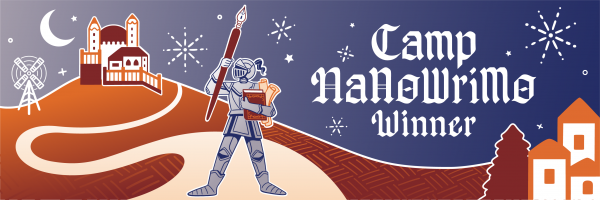
Well, after a long hard month and many ups and downs, I have successfully completed Camp Nanowrimo, one of the three yearly National Novel Writing Month challenges to write 50,000 words of a novel in a month - and this is my 32nd time claiming viiictory!
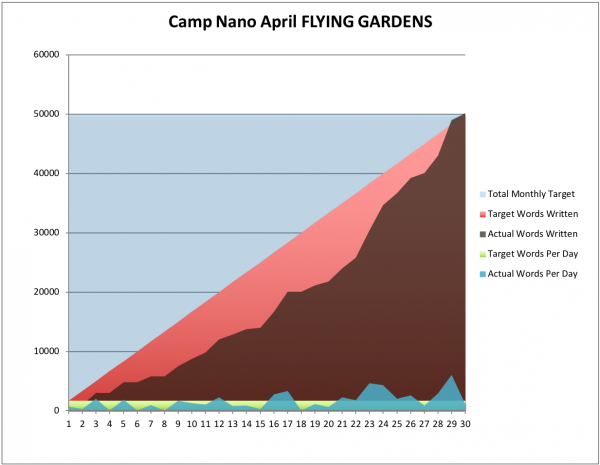
This was one of the more challenging Nanos for me, as April is our quarterly planning month, and on top of that we decided to switch managers within our team and to switch to semester planning in our org. So that led to a dip in the beginning, where it was hard for me to get my groove.
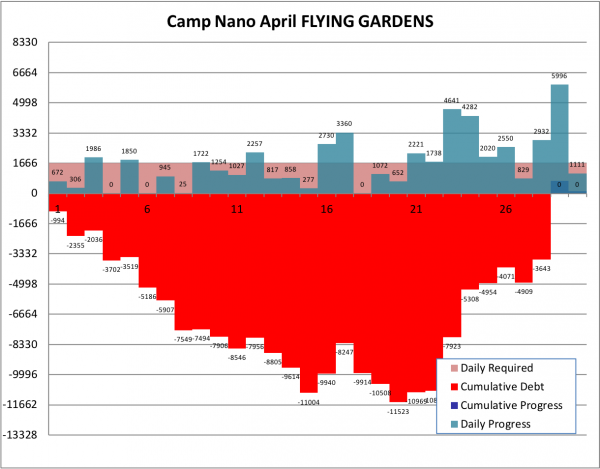
The blood on the deck continued almost to the end of Camp Nano. This month's project was my third go at JEREMIAH WILLSTONE AND THE FLYING GARDENS OF VENUS, and I found it particularly difficult to get momentum as the story is more complicated than normal, with a new protagonist Puck taking center stage in addition to Jeremiah. You can see the dip compared to past Nanos:

I felt like I was struggling and stumbling with the story, writing and rewriting scenes, trying out different alternates (I count these as words written; editing can come later). However, as I rolled into the end of the month, these struggles started to pay off, as I understood better what was up with Puck, why so many weird things happened around her, and what role they played in the story.
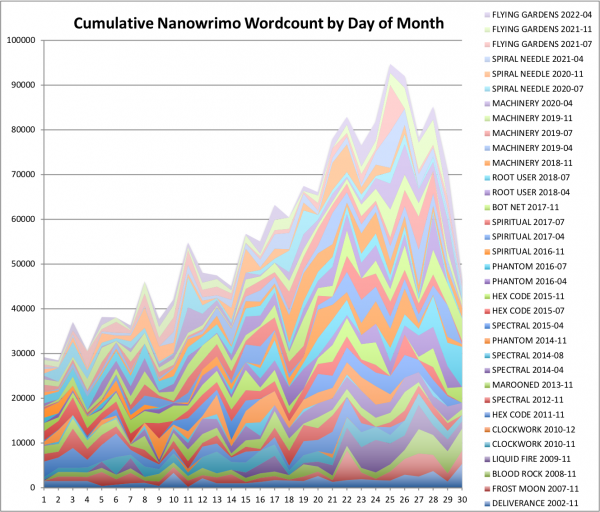
Over the years of doing Nano, I've reached this particular point of the enterprise many times - a point which I sometimes call "going off the rails". This is the point where the story seems to gel, and I think it happens when I go from exploring the logical consequences of a set of characters in a situation - which is where I start almost all of my writing - to creatively injecting things into the story that could not be predicted from its beginnings. These still need to be grounded in the plot and consistent with the characters, but there's a difference between the things you typically expect to happen in a scenario and truly creative innovations which cannot be predicted from the setting alone - what the Mythcreants writing team calls Novelty in their ANTS framework (Attachment, Novelty, Tension and Satisfaction).

Over almost 20 years, I've had this creative spark, this "going off the rails" many, many times, and stories always seem better for it. I have tackled 16 Nanowrimos so far out of 34 monthly challenges (also counting Camp Nano and Script Frenzy) and have successfully completed it 32 times.
Each time for me, it's facing those middling slumps, facing the places where I've fallen out of love with my own story, that ultimately kickstart my creativity into high gear and make me fall in love with my work again.
That happened this time, even though I wanted to give up. I know Nano doesn't work for everyone, so your mileage may vary, but for me, as I've often found in other arenas of my life, you sometimes have to work just a little bit harder than you want to to reach an outcome which is far better than you have any right to expect. That was true with Cinnamon, originally a side character in the first Dakota Frost about whom I have now drafted three novels, and it is turning out to be true here with Puck as well, the Girl Who Could Wish, now turning into a truly interesting twist.
Oh, an excerpt. Let me see if I have some rough draftiness lying around here ...
“It’s an ecosystem,” Puck murmured. “There’s a whole ecosystem in the floatbergs—”
One of the jellyfloats wandered under one of the falls, and screamed, terrifyingly human-like, as it steamed and melted—and then Puck realized what the liquid was: sulfuric acid. This was an upper-atmosphere floatberg, its engineered bacteria designed to harvest sulfuric acid from the air—and as the floatberg disintegrated, the collected sulfuric acid which had not been processed was now spilling out in uncontrolled streams, destroying whatever had inhabited this cavern.
“I’m sorry,” Puck said to her little audience. “I … I think it’s too late.”
One of the bigger parakeys, with a crest, hopped up on her knee.
“Is that a vest?” she said, touching a bit of what looked like cloth. “You … you can’t be intelligent creatures, now can you? How could you start a whole civilization up here? Floatbergs only go back a few hundred years, and they don’t last for more than months, maybe weeks—”
The parakey chieftain, if that’s what it was, cheeped at her.
Puck drew a breath.
“I wish this cave could be saved,” she said carefully. The crowd of parakeys cheeped and beeped, and the chieftain pawed at her and cheeped even louder, like a little screech, and she relented. “Alright, a proper, non-conditional wish this time. I wish this cave would be—”
The bottom dropped out from beneath them.
Poor Puck! She can't seem to cut a break. But at least I know who and what she is now, and how she's related to Jeremiah, and can therefore move forward with this story with confidence.
Prevail, Victoriana!
-the Centaur
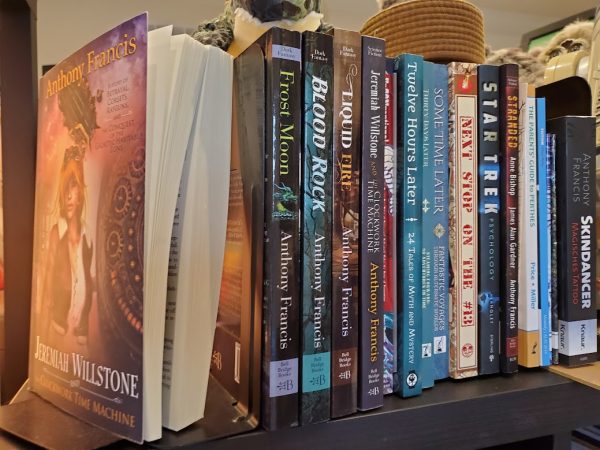


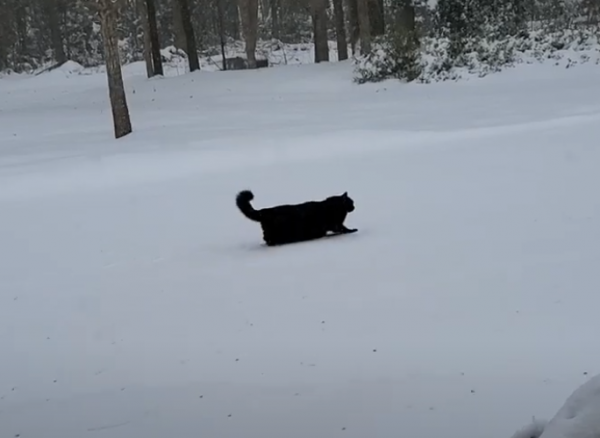
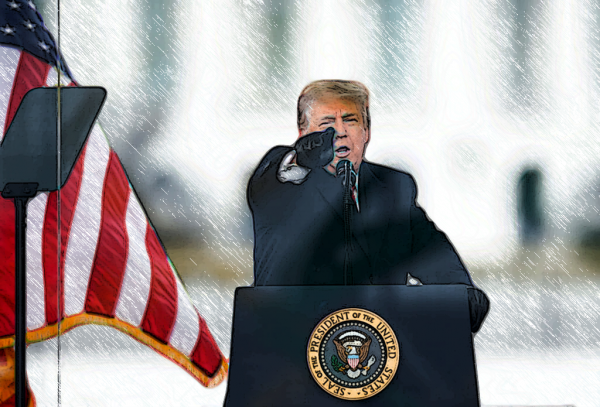

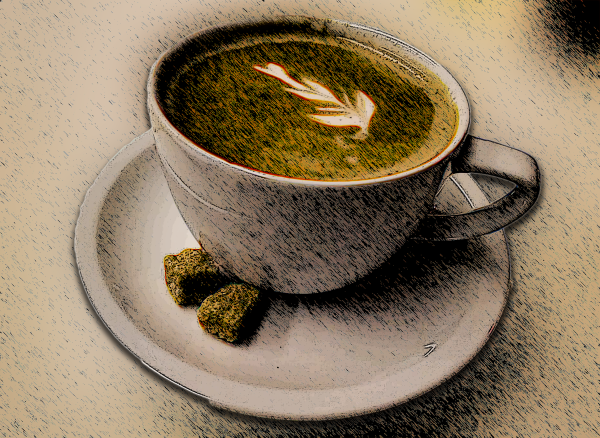

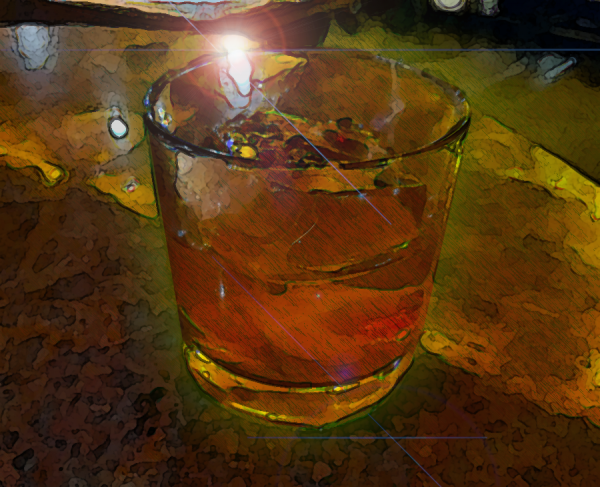

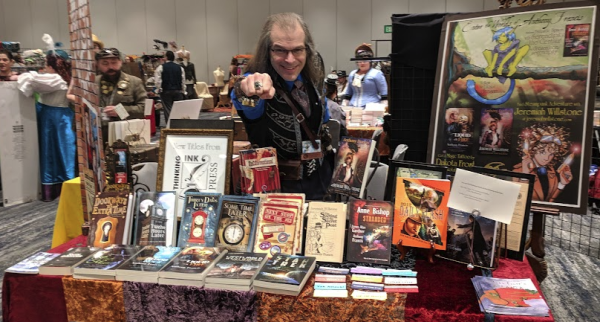
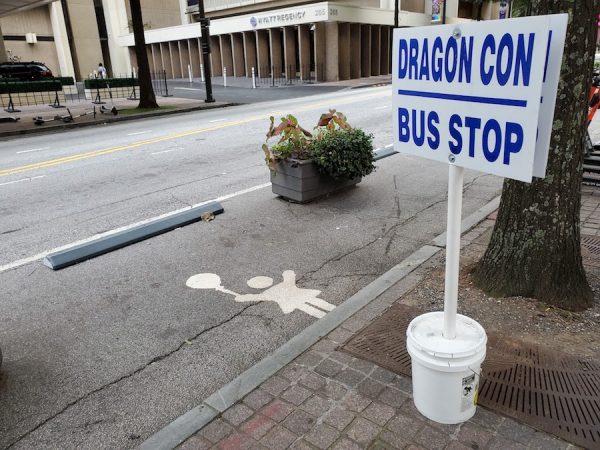

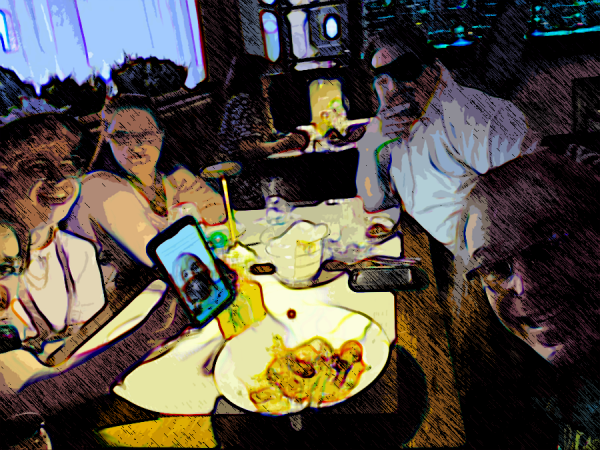

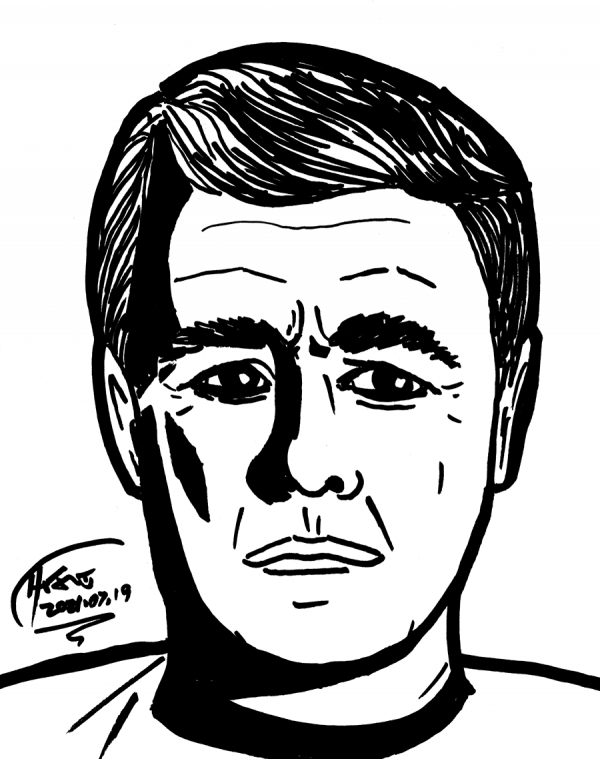 Day 206, a sketch of Montgomery Scott from Star Trek:
Day 206, a sketch of Montgomery Scott from Star Trek:
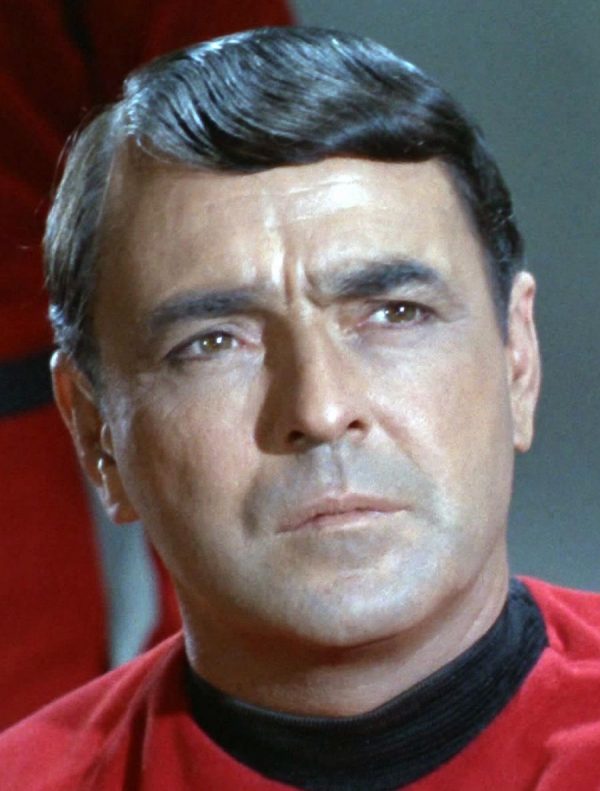 How ddid I do? Still can't seem to draw a correctly tilted head, and face to hair proportions continue to be off:
How ddid I do? Still can't seem to draw a correctly tilted head, and face to hair proportions continue to be off:
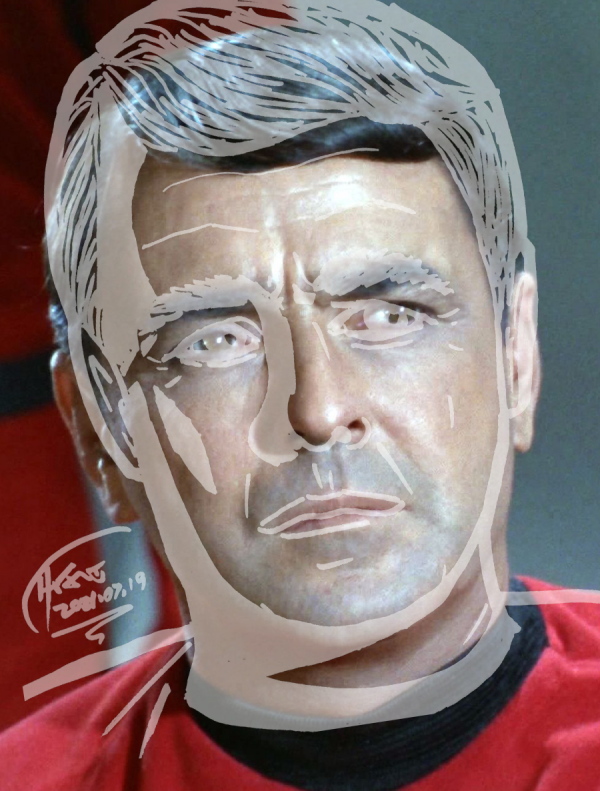 Day 207, Nyota Uhura:
Day 207, Nyota Uhura:
 Umn, well, it is the same person, sort of, but she's looking down, and the original, up:
Umn, well, it is the same person, sort of, but she's looking down, and the original, up:
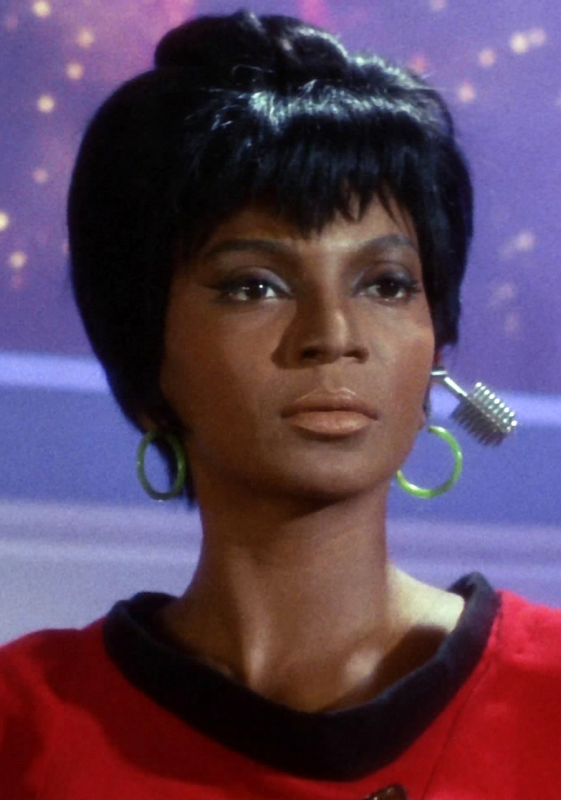 So, no real way to make these line up, but it isn't totally terrible:
So, no real way to make these line up, but it isn't totally terrible:
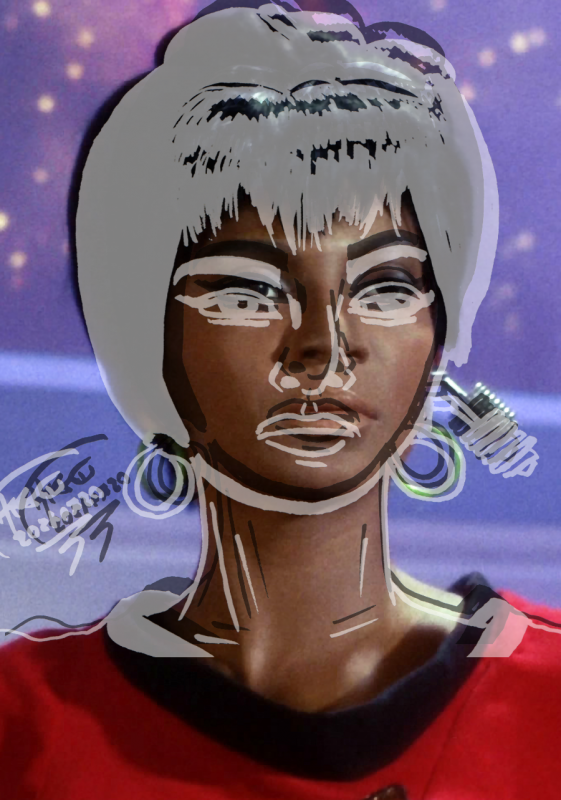 Day 208, Hikaru Sulu:
Day 208, Hikaru Sulu:
 Again, more or less the same person, but I made him look down, and what happened to his chin?
Again, more or less the same person, but I made him look down, and what happened to his chin?
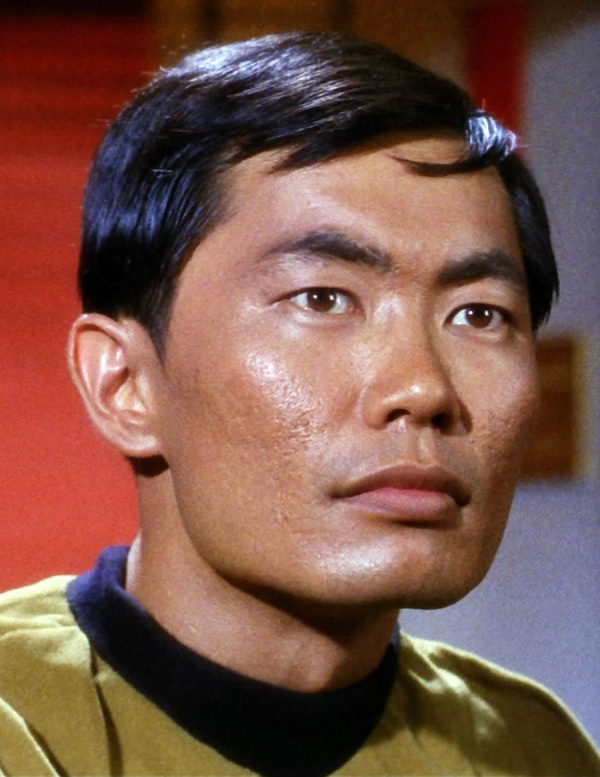 Overall comparison cannot be made to line up:
Overall comparison cannot be made to line up:
 Day 209, Pavel Chekhov. I don't have the original reference on this computer, but I'm sure a comparison would be equally terrible to all the others, if not worsee.
Day 209, Pavel Chekhov. I don't have the original reference on this computer, but I'm sure a comparison would be equally terrible to all the others, if not worsee.
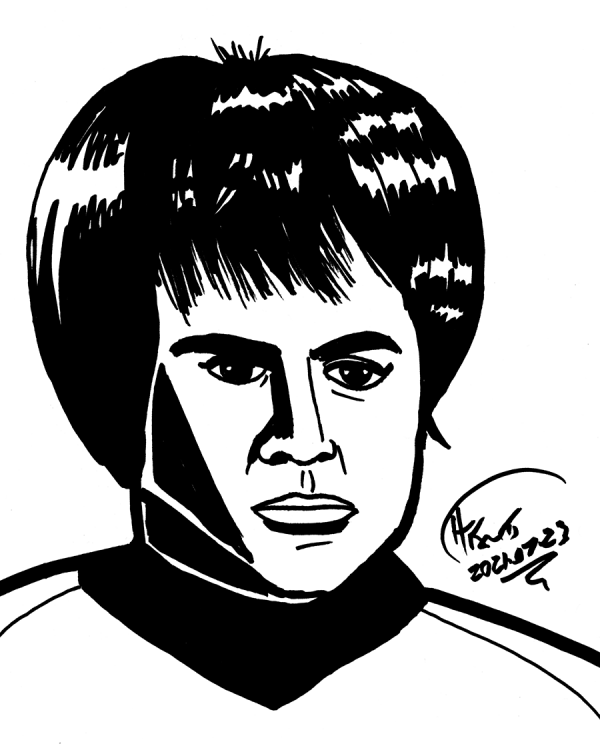 Drawing every day, posting when i get to it.
-the Centaur
Drawing every day, posting when i get to it.
-the Centaur
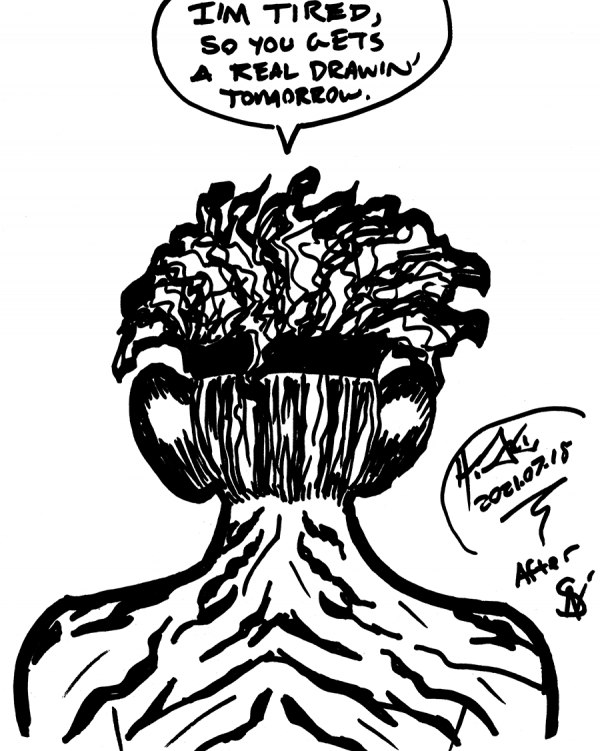 The back of Cinnamon Frost, after a painting by my wife. Drawing every day, even if I wasn't posting.
-the Centaur
The back of Cinnamon Frost, after a painting by my wife. Drawing every day, even if I wasn't posting.
-the Centaur 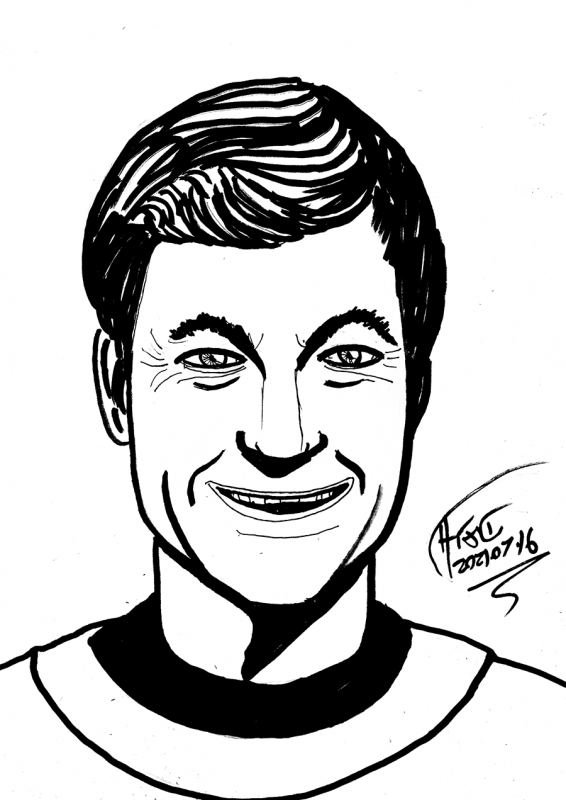

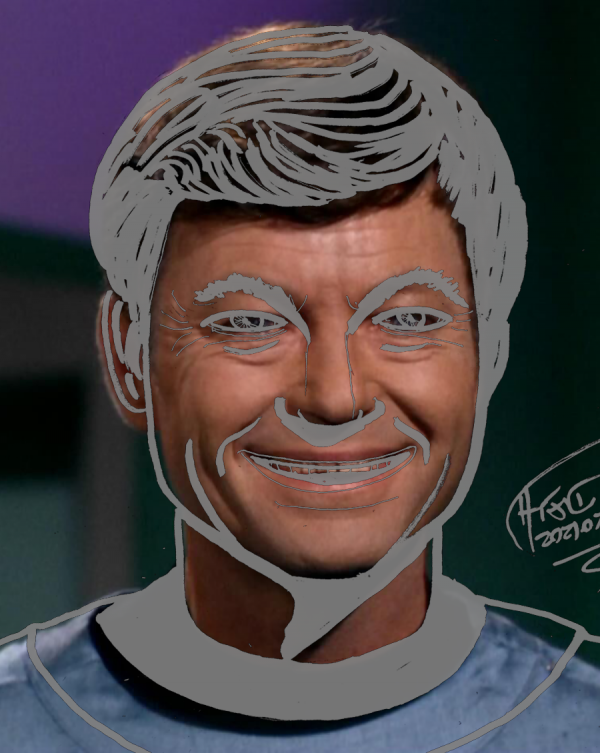
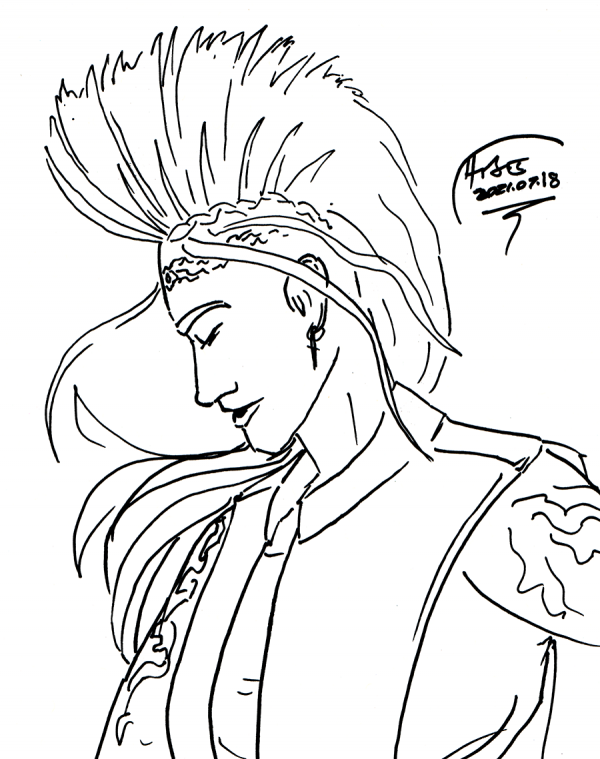
 Day 200 - Khaaan! Let's see how I did:
Day 200 - Khaaan! Let's see how I did:
 Meh. Head not wide enough.
Meh. Head not wide enough.
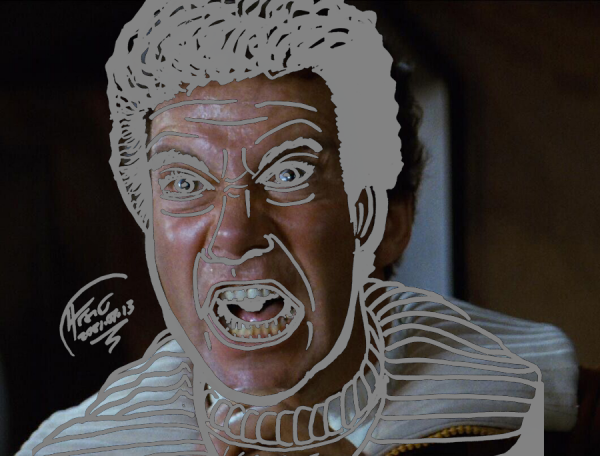 Day 201 - Khan, the man himself:
Day 201 - Khan, the man himself:
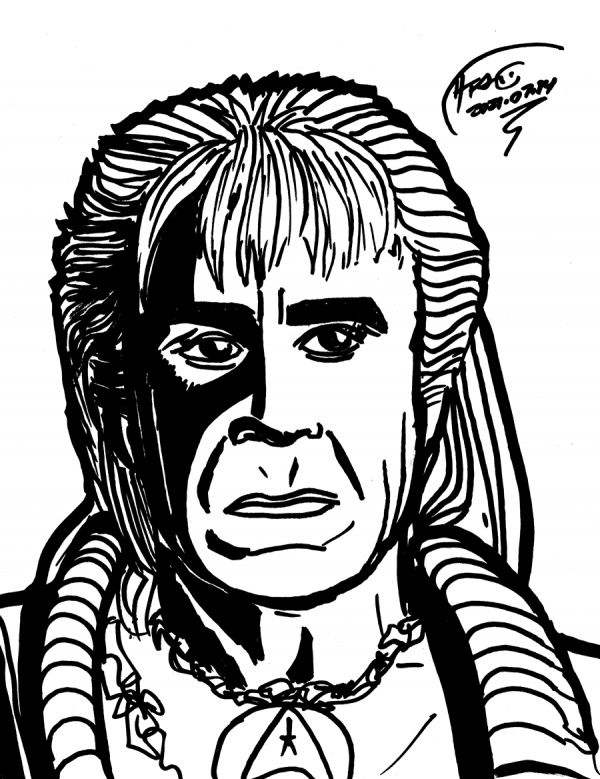 Day 202 - Spooock!
Day 202 - Spooock!
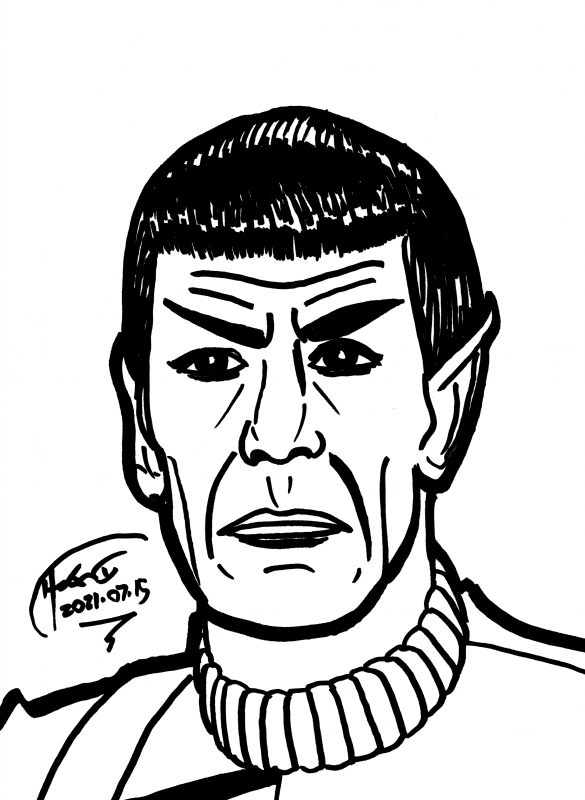 Let's see how I did:
Let's see how I did:
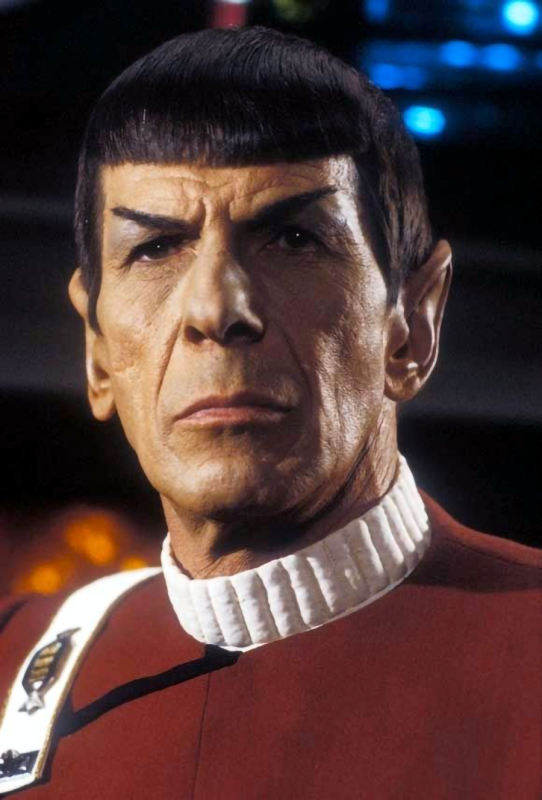 As I recall, there was no good way to line up the face and the hair.
As I recall, there was no good way to line up the face and the hair.
 Drawing every day.
-the Centaur
Drawing every day.
-the Centaur 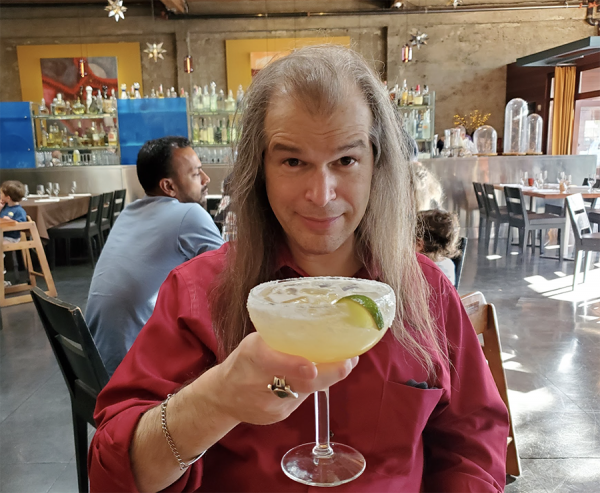
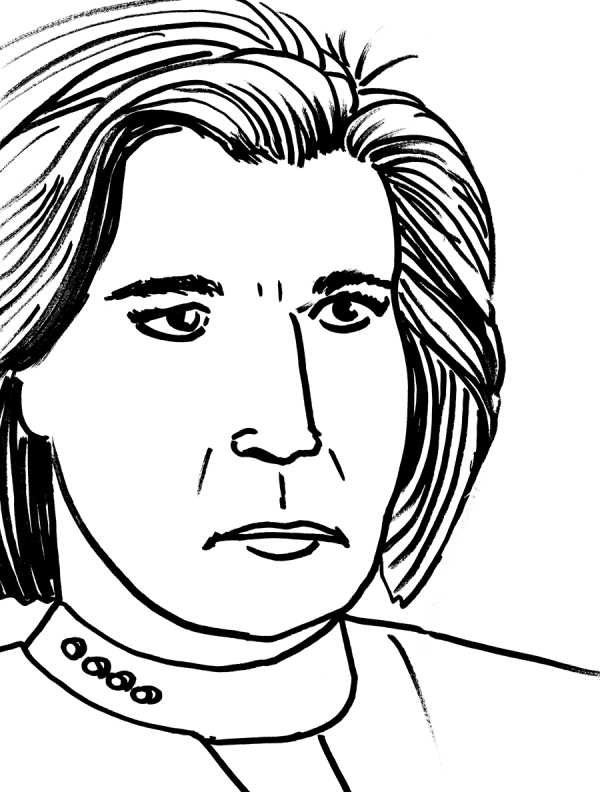 Day 196: Quick sharpie sketch of Janeway, from the below image.
Day 196: Quick sharpie sketch of Janeway, from the below image.
 The comparison is not great - the face is way too long compared to the original:
The comparison is not great - the face is way too long compared to the original:
 Day 197, Sharpie over non-repro blue roughs, from the same image:
Day 197, Sharpie over non-repro blue roughs, from the same image:
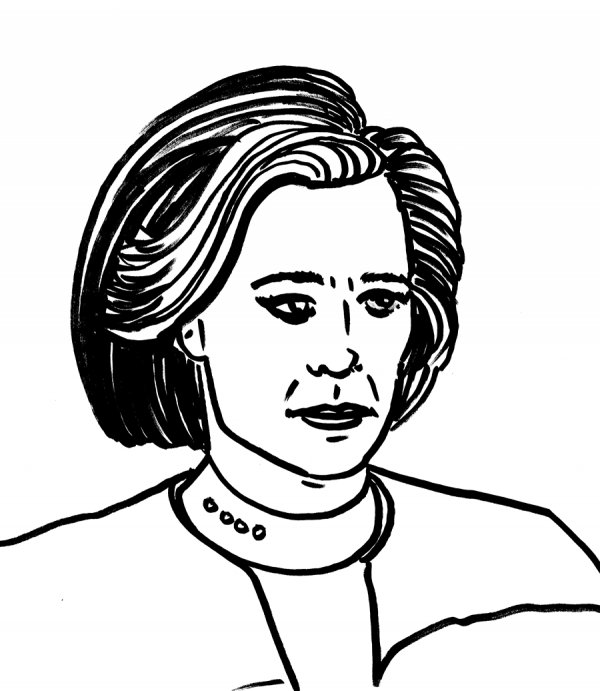 Slightly better comparison this time, though still not perfect:
Slightly better comparison this time, though still not perfect:
 Day 198 was Richard Branson ... in spaaace:
Day 198 was Richard Branson ... in spaaace:
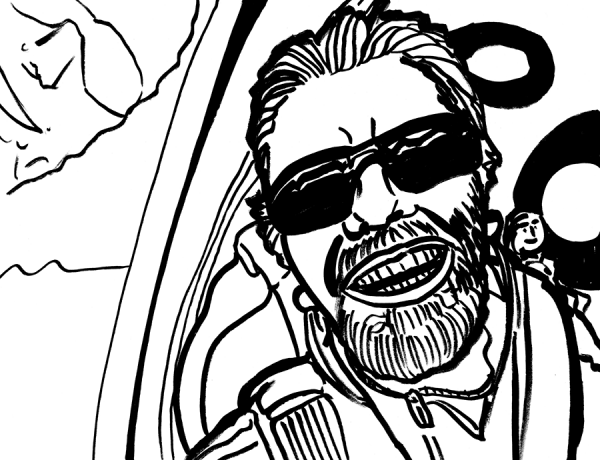 That's from this fisheye lens image ... while it isn't perfect, it captures a lot of energy. I particularly like the smile in the reflection (in both my drawing, and in Branson's window - he's having fun!). No comparison this time; this exercise was in capturing the feel more than the precise lineup.
That's from this fisheye lens image ... while it isn't perfect, it captures a lot of energy. I particularly like the smile in the reflection (in both my drawing, and in Branson's window - he's having fun!). No comparison this time; this exercise was in capturing the feel more than the precise lineup.
 Day 199 was Martin Sheen from The West Wing:
Day 199 was Martin Sheen from The West Wing:
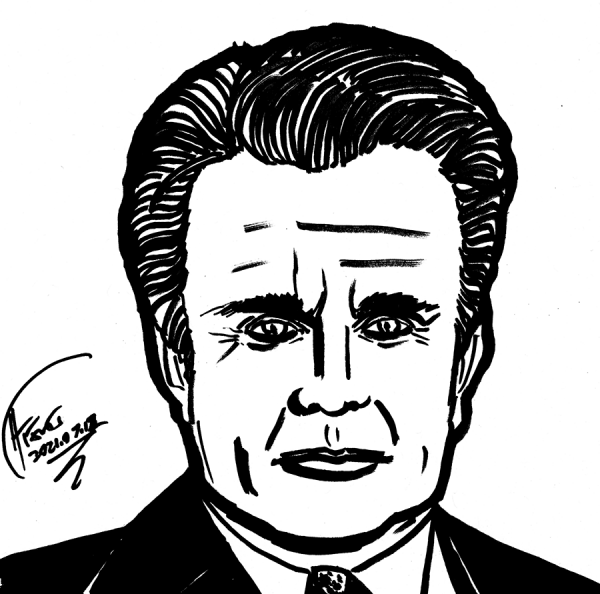 Not an entirely terrible likeness ...
Not an entirely terrible likeness ...
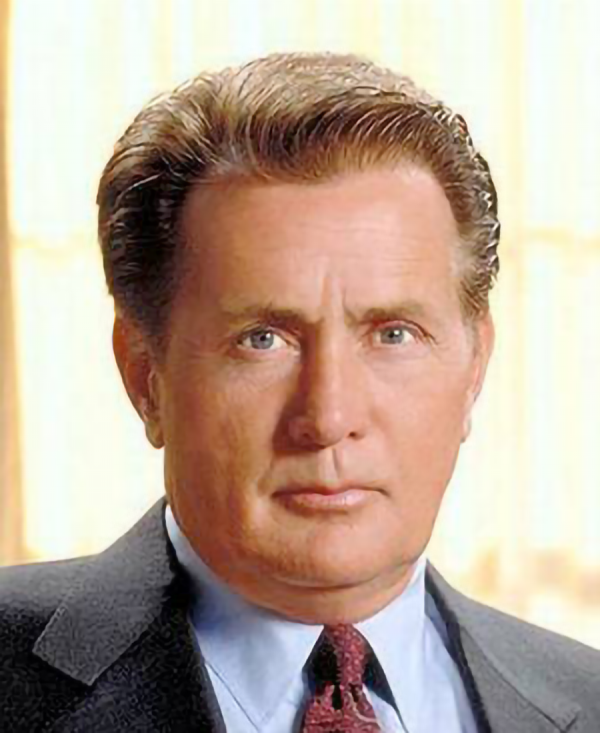 ... but my perennial problem of having a face out of proportion to the head continues.
... but my perennial problem of having a face out of proportion to the head continues.
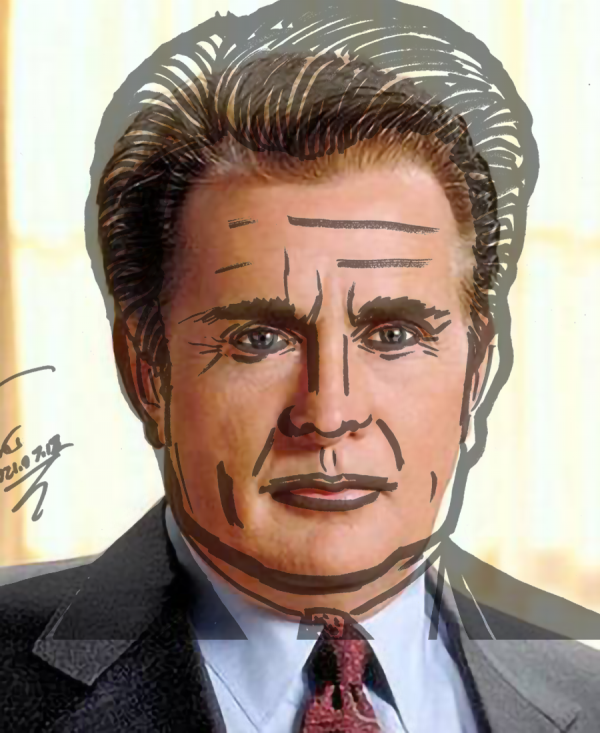 Look at that hair, man. You can make the eyes and mouth line up, but that hair, man.
Still, drawing every day.
-the Centaur
Look at that hair, man. You can make the eyes and mouth line up, but that hair, man.
Still, drawing every day.
-the Centaur